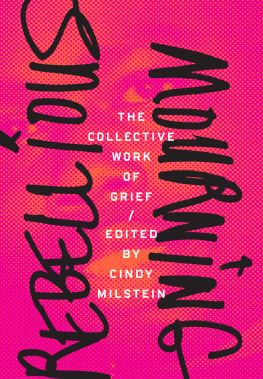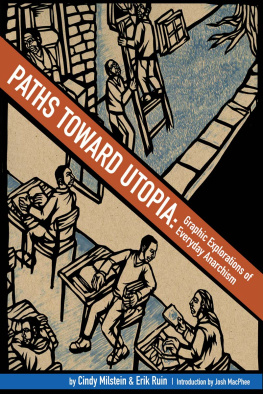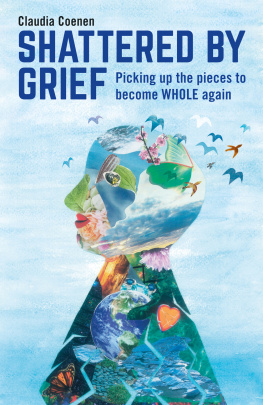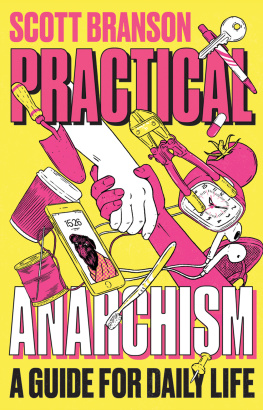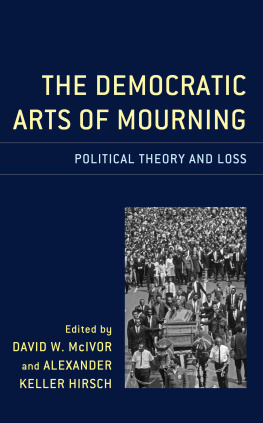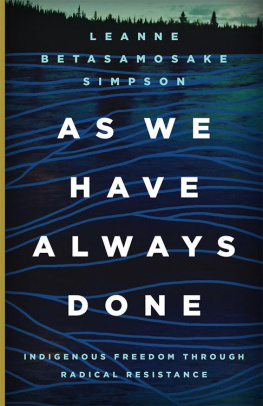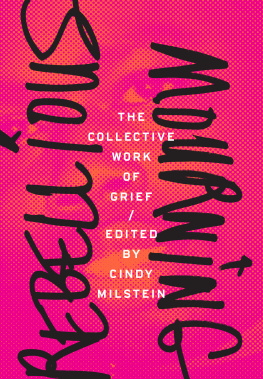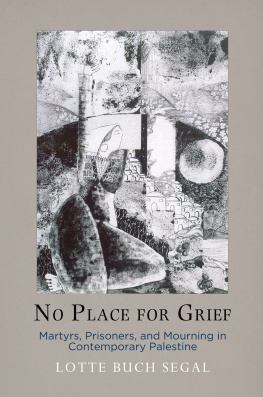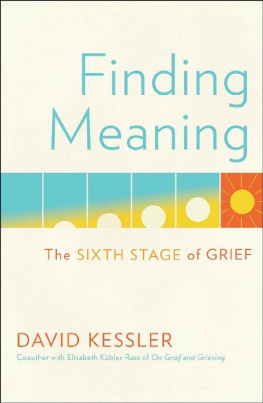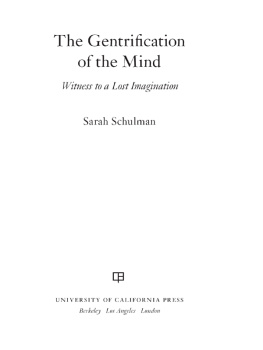PRAISE FOR REBELLIOUS MOURNING
In a time when so many lives are considered ungrievable (as coined by Judith Butler), grieving is a politically necessary act. This evocative collection reminds us that vulnerability and tenderness for each other and public grievability for life itself are some of the most profound acts of community resistance.
HARSHA WALIA, author of Undoing Border Imperialism
Before the analysis and the theory comes the story, the tale of the suffering and the struggle. Connecting mothers demanding justice for their children killed by the police, to neighbors monitoring the effects of radiation after Fukushima, to activists bringing water to immigrants crossing the borderlands, or fighting mountaintop removal in West Virginia, or keeping the memory alive of those who died of AIDS, Rebellious Mourning uncovers the destruction of life that capitalist development leaves in its trail. But its also witness to the power of grief as a catalyst to collective resistance. It is a beautiful, moving book to be read over and over again.
SILVIA FEDERICI, author of Caliban and the Witch: Women, the Body, and Primitive Accumulation
Our current political era is filled with mourning and loss. This powerful, intimate, beautiful book offers a transformative path toward healing and resurgence.
JORDAN FLAHERTY, author of No More Heroes: Grassroots Challenges to the Savior Mentality
Rebellious Mourning offers thoughtful, artful essays by resisters on the meanings and uses of grief and mourning. This collection encourages us as people and organizers to understand the Phoenix-like power of these emotions. A primary message here is that from tears comes the resolve for the struggle ahead.
RON JACOBS, author of Daydream Sunset: 60s Counterculture in the 70s
In our imperfect world, grief is distributed as unequally as wealth. Certain losses and lives are mourned while others are cruelly disregarded; a minority pays attention to suffering while the majority turns away. This intimate, moving, and timely collection of essays points the way to a world in which the burden of grief is shared, and pain is reconfigured into a powerful force for social change and collective healing.
ASTRA TAYLOR, author of The Peoples Platform: Taking Back Power and Culture in the Digital Age
The great Wobbly agitator, Joe Hill, famously told us, Dont mourn, organize! But he was talking about the loss of hope and confidence that we can contribute to the struggles for justice, that it is a way of life, a culture of resistance. These essays by some of the most dedicated organizers among us today show that honoring and rememberingyes, mourningactually strengthens our solidarity and vision. Cindy Milstein has created an essential and dynamic work.
ROXANNE DUNBAR-ORTIZ, author of An Indigenous Peoples History of the United States
Grief is often regarded as one of those negative emotions we simply have to get through. But can it also be a process of sharing and learning, motivating us to make the world a better place? This books answer is a resounding yes!
GABRIEL KUHN, author of Playing as If the World Mattered: An Illustrated History of Activism in Sports
Political organizers, whose lives are devoted to ending the injustice that causes inordinate grief in others, too often dismiss our own grief as shameful or self-indulgent. But this beautiful collection of essays is a clarion call to turn and face the truth of our own sorrowand its power, as editor Cindy Milstein writes, to open up cracks in the wall of the system. Here, thinkers, organizers, and artists, from Ferguson to Appalachia to Fukushima to Oaxaca to maximum-security prisons, share their lives, their work, and the various ways in which acknowledging griefthat unavoidable leveler of soulscan allow despairing, isolated peoples to rise together as one.
SUSIE DAY, author of Snidelines: Talking Trash to Power
Rebellious Mourning gathers together a motley assortment of grief narrativesvoices of authentic mourning usually segregated and silenced by design. This groundbreaking anthology offers access to diverse experiences of what it feels like to grieve for those weve lost, within the context of all-too-often-deadly systems of global hegemonic control. Milstein and contributors explore the challenge of making contact with the pain of mourning not as a liability but rather a necessary step toward the reclamation of collective power. As such, Rebellious Mourning represents an indispensable road map by which those of us grieving many kinds of losses might find our way back to generative struggle, during a time when the Left so urgently needs new sites for building connection.
KATHLEEN MCINTYRE, editor of The Worst
Like songs of sorrow sung together, or laughing in pain and survival around a campfire, this book leaves us whole, grounded, ready for movement, as grief shared in connection should.
CINDY CRABB, author of Learning Good Consent: On Healthy Relationships and Survivor Support
REBELLIOUS
MOURNING
/
THE
COLLECTIVE
WORK
OF
GRIEF
EDITED BY
CINDY
MILSTEIN
AK PRESS
Copyright
Rebellious Mourning: The Collective Work of Grief
Edited by Cindy Milstein
All essays 2017 by their respective authors
This edition 2017 AK Press (Chico, Edinburgh, Baltimore)
ISBN: 978-1-84935-284-0
EBOOK ISBN: 978-1-84935-285-7
Library of Congress Control Number: 2017936241
AK Press
370 Ryan Ave. #100
Chico, CA 95973
USA
akpress@akpress.org
AK Press UK
33 Tower St.
Edinburgh EH6 7BN
Scotland
ak@akdin.demon.co.uk
The above addresses would be delighted to provide you with the latest AK Press distribution catalog, which features several thousand books, pamphlets, zines, audio and video recordings, and gear, all published or distributed by AK Press. Alternately, visit our websites to browse the catalog and find out the latest news from the world of anarchist publishing:
www.akpress.org | www.akuk.com | revolutionbythebook.akpress.org
Designed by Quemadura
Printed in Michigan on acid-free, recycled paper
Cover illustration: street portrait of David W are, who was killed January 23, 2007 by law enforcement agents in Ypsilanti, Michigan
Claudia Rankine, The Condition of Black Life Is One of Mourning, first published in The New York Times Magazine (June 22, 2015). Copyright 2015 by Claudia Rankine and The New York Times Company. Reprinted by permission of the author.
Leanne Betasamosake Simpson, it takes an ocean not to break, was first published in Islands of Decolonial Love ( Winnipeg: Arbeiter
Ring Publishing, 2015). Reprinted by permission of the author.
Dedication
TO
CHIKANOBU MICHIBA (19672016)
ALL THOSE LOST LIVES NAMED IN THIS BOOK
ALL THE LOSS HELD BY THOSE STILL LIVING
AND MY THREE NOW-DEAD PARENTS,
BARB AND DAVE MILSTEIN, AND MARY BURKS
PROLOGUE
/
CRACKS IN THE WALL
CINDY MILSTEIN
Your struggle is a crack in the wall of the system. Dont allow Ayotzinapa to close up. Your children breathe through that crack, but so do the thousands of others who have disappeared across the world.
So that the crack does not close up, so that the crack can deepen and expand, you will have in us Zapatistas a common struggle: one that transforms pain into rage, rage into rebellion, and rebellion into tomorrow.
SUBCOMANDANTE GALEANO, The Crack in the Wall: First Note on the Zapatista Method, on the 43 disappeared Ayotzinapa students
We are, at present, swimming in a sea of grief. That sea includes death, but it is also so much larger, encircling all sorts of sorrows. In a better world, many of these disappearances would be avoidable, even unimaginable. For now, given the loss-filled waters we inhabit, how to better navigate through them, and without drowning? How to shift course, veering closer to a more humane self and society?

